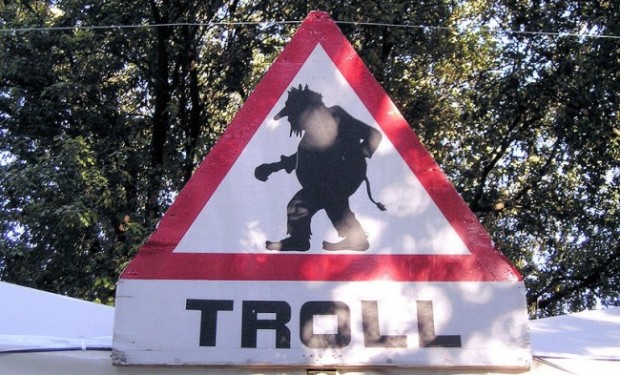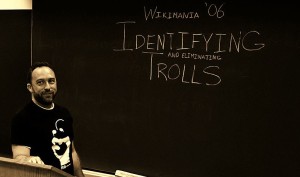Scanner Patent Troll Saga Continues
The scanner-patent troll MPHJ Technologies takes its claims to court and seeks sanctions against the government.
The 16,465 American businesses that received a demand letter this past year from MPHJ Technologies had to make a decision: pay a licensing fee of $1,000 per worker or saddle up for a possible patent infringement lawsuit. But when lawsuits were not filed, and forceful demand letters continued to be sent, it raised a few eyebrows.
 Were the letters in violation of state consumer protection laws? Were the letters constitutionally protected free speech? And, above all else, what can be done to stop MPHJ’s patent trolling tactics?
Were the letters in violation of state consumer protection laws? Were the letters constitutionally protected free speech? And, above all else, what can be done to stop MPHJ’s patent trolling tactics?
MPHJ Technologies, a company that has become notorious for patent trolling operations, claims to own patents that involve a “scan-to-email” process, a function prevalent in modern office equipment operation. Patent trolls are not a new phenomenon, but the MPHJ demand letters have elucidated some flaws in the patent system that have allowed them, and other trolling companies, to profit from patent ownership. Patent ownership does not give rights of production to the holder; rather, the holder has the right to exclude the use of the patent by others.
And this right to exclude is MPHJ’s most lethal weapon.
The company’s patent enforcement letters were met with serious backlash from manufacturers, consumers, legislators, and state governments. There is now a rallying cry in Washington, D.C. from Congress for patent reform. Vermont and other states have filed suit against MPHJ Technologies for violation of state consumer protection laws. Even the Federal Trade Commission is now targeting MPHJ Technologies.
But MPHJ has shown that it is not going down without a fight. The company recently initiated a preemptive lawsuit (PDF) in anticipation of the FTC seeking sanctions against it. Furthermore, MPHJ has begun to take legal action and file lawsuits against companies using the “scan-to-email” function. What was once considered an empty threat as a means to coerce settlements is now taking the form of full-blown patent litigation.
Patent acquisition breeds patent enforcement.
The patents in dispute were duly issued by the United States Patent Office to inventor Laurence C. Klein (referred to as the “Klein Patents”) between the years 2001 and 2011. According to MPHJ’s complaint, MPHJ later became the assignee and owner of the Klein Patents (#6,185,590, #6,771,381, #7,477,410, #7,986,426, #8,488,173) when it acquired a Virginia Limited Liability Company, Project Paperless, in 2012.
Prior to the acquisition, Project Paperless concluded that infringement of the Klein patents was widespread in the United States. Project Paperless worked with consultants to identify companies likely to have infringing systems. The company determined that, among the identified companies, those with twenty employees or more were likely infringing the Klein Patents.
As described in MPHJ Technologies complaint against the FTC, Project Paperless began sending out inquiry letters that would give infringing users the opportunity to enter into a license agreement and avoid litigation. The royalty rate, $1,000, was thought to be a “fair” deal.
Dissatisfied with the lack of response, Project Paperless sent out a second letter asking for a response to the first inquiry. After another failed attempt to rile the attention of the alleged infringing users, a third letter was sent. This time, as if to evidence that Project Paperless’ threat of suit was not hollow, a draft complaint was attached.
The third letter had the effect of engaging more companies in licensing discussions, the complaint said. There was a “positive response,” MPHJ Technologies stated, because “they came to understand that Project Paperless’ claims were substantive.”
After acquiring the Klein Patents from Project Paperless, MPHJ Technologies decided to follow Project Paperless’ enforcement tactics. Letters were first sent to smaller companies with twenty to forty-nine employees, then to mid-sized companies. The 101 subsidiaries of MPHJ were formed to “better organize” what MPHJ believed to be a “widespread licensing effort.” Each of the subsidiaries were bequeathed with a curious six-letter name, such as AdzPro, to reflect their enforcement responsibilities.
States take it upon themselves to protect their citizens from deceptive trade practices.
In the early summer of 2013, the Vermont Attorney General William Sorrell filed suit against MPHJ (PDF) for violating state consumer protection laws. The suit arose in the growing wake of frustration that the MPHJ demand letters were causing among small businesses in Vermont. Of the companies targeted by MPHJ, two were said to be small non-profit entities that provide care for the disabled.
The complaint explains that MPHJ had sent out three letters to various Vermont businesses on behalf of MPHJ subsidiaries. In the third letter, MPHJ threatened to file suit against any business that did not respond to the letter within two weeks. However, more than four months had passed and no legal action had been taken. The complaint alleges that MPHJ engaged in unfair and deceptive trade practices because it was not prepared to litigate its claims, and sent the letters “in bad faith.” Other states, such a Nebraska, soon followed Vermont’s lead.
“Patent trolls make egregious claims with little or no valid legal purpose to gain fast money,” said Nebraska Attorney General Jon Burning in a news release (PDF). “It is the top priority of this office to protect Nebraska consumers and businesses from this sort of harassment.”
In Minnesota, MPHJ was ordered to completely cease its patent enforcement operation. The company could only resume if it is granted permission by the Attorney General. “Patent trolls shake down small businesses to pay license fees they may not owe to avoid threats of costly litigation,” Attorney General Lori Swanson said in a press release.
New York took a different approach and reached a settlement agreement with MPHJ that imposes certain guidelines to prevent violation of consumer protection laws. Attorney General Eric Schneiderman stated in a press release that the settlement should be viewed as a minimum standard for MPHJ and other like entities to avoid liability for unlawful deceptive practices. The standards set forth are as follows:
- Diligence and Good Faith When Contacting Potential Infringers
- Providing Material Information So an Accused Infringer Can Evaluate the Claim
- No Misleading Statements about a License Fee
- Transparency of the True Identity of the Patent Holder
The state of Maine is taking yet another approach to dealing with the MPHJ patent enforcement letters. State Sen. Anne Haskell, Democrat, has proposed legislation that would allow any person to file a lawsuit against someone who has made a bad faith patent assertion against him or her. In turn, the court could award damages, attorney fees, and punitive damages up to $50,000 or treble damages, whichever is greater.
Scanner-patent letters raise the FTC’s suspicions.
In the midst of the state controversies, the FTC sent a subpoena to MPHJ requesting information about its patent-enforcement demand letters in June 2013, and in December prepared to sue MPHJ under Section 5 of the FTC Act (PDF) barring deceptive trade practices.
In stating its complaint against the FTC, MPHJ argues that the FTC’s interference in the enforcement of the Klein Patents is “impeding [its] lawful, proper, and constitutionally protected efforts.” The FTC’s proposed lawsuit was principally based on the fact that MPHJ had sent the demand letters in an effort to coerce licensing agreements with no real intention to file suit. MPHJ was delayed in filing lawsuits, it stated, because the company was handling the lawsuits filed against it by various states’ Attorney Generals.
The troll is coming out of its cave to fight.
Late last year, MPHJ filed its first actual lawsuit against Research Now, a Texas company. Though the complaint concedes that MPHJ’s knowledge of Research Now’s office operations is minimal, MPHJ has concluded that Research now was using “at least one networked scanning system” based on public records. At least four other lawsuits have been filed in Delaware, most notably against Coca-Cola and Dillard’s.
MPHJ has also successfully entered into licensing agreements with some manufacturers, thereby shielding end-users from infringement liability. Both Canon and Sharp have entered into agreements with MPHJ that amount to covenants-not-to-sue. Other printer manufacturers—like Xerox, Lexmark, and Hewlett-Packard—remain at odds with MPHJ. Furthermore, a federal judge in Nebraska upheld MPHJ’s demand letters as constitutionally protected speech.
It is unclear how MPHJ’s lawsuits will impact manufacturers and end-users in the future.
This begs the question: if MPHJ does have a meritorious claim that can be successfully litigated in federal court, who will bear the burden of liability? Should it be the manufacturer or the end-user? Proposed patent reform legislation is attempting to level the playing field by preventing exploitation of vulnerable end-users. However, if customers begin to weigh the costs of potential liability, then companies like MPHJ could have a significant impact on the economy well beyond the scope of compelled licensing agreements and litigation costs.
For example, lawsuits filed against end-users of technology could threaten the loss of profits and damage to brand reputation. To avoid potential liability, end-users might choose to contract with companies like Canon that have entered into agreements with the patent owner. In turn, patent trolls such as MPHJ could have much higher bargaining power when entering into settlement agreements with large technology manufacturers.
All agree something must be done to prevent patent trolling, but there is no agreed upon method.
The scanner-patent troll MPHJ has exploited the patent system to its advantage and exposed its susceptibility to abuse. For legislators, the aim of patent reform may be to equip alleged infringers with the means necessary to fend off bogus claims of infringement. But what if those claim are not bogus? What if patent trolls such as MPHJ have legitimate authority to enforce its rights as a patent holder?
There have been a number of methods of dealing with patent trolls proposed by state courts, state legislators, and Congress, but there is no clear path forward as of yet. If the demand letters are constitutionally protected speech, then perhaps the best solution is to create standards that protect consumers from deceptive trade practices. Proposed legislation is yet another way to level the playing field between end-users and trolling companies.
But the much larger issue looming in the background is what will happen when MPHJ takes these businesses to court. If MPHJ is to succeed on its claims of infringement, the major questions are: who should ultimately be liable, and how can patent reform legislation prevent others from entering the trolling game?







